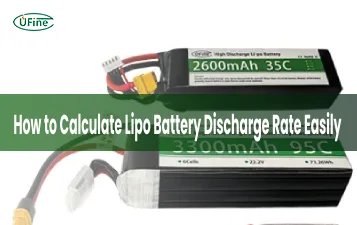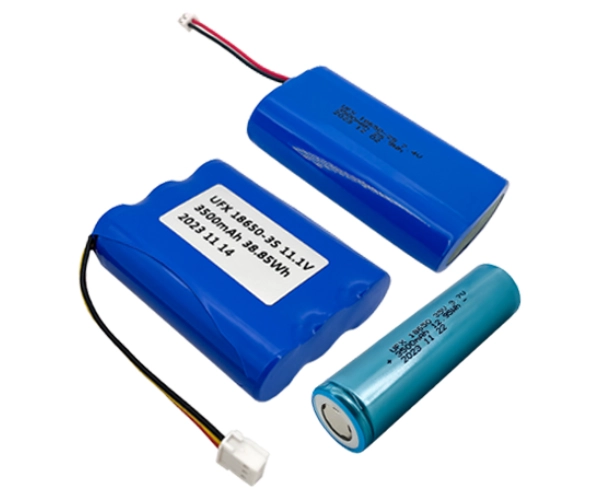When powering your RC boat, choosing the correct battery is crucial for optimal performance and longevity. Your selected battery will directly impact your RC boat’s speed, runtime, and enjoyment. In this comprehensive guide, we will explore the various factors to consider when choosing an RC boat battery and provide you with valuable insights to make an informed decision.
Part 1. What are RC boat batteries?
RC boat batteries are rechargeable power sources designed explicitly for remote-controlled boats. These batteries provide the necessary electrical energy to propel the boat’s motor, control its movements, and operate additional onboard features. Unlike traditional disposable batteries, manufacturers build RC boat batteries to withstand the demands of high-performance RC boats and offer longer runtime.
Part 2. How do you choose the correct lithium battery for your RC boat?
Lithium batteries have gained immense popularity in the RC boat community due to their outstanding performance and energy density. When selecting a lithium battery for your RC boat, there are several key factors to consider:
1. Capacity (mAh)
The battery capacity, measured in milliampere-hours (mAh), indicates the charge the battery can store. Higher capacity batteries generally offer longer runtime. Analyze your RC boat’s power requirements and choose a battery with a capacity that suits your desired runtime.
2. Voltage (V)
The voltage rating of the battery determines the power output and compatibility with your RC boat’s motor. Ensure that the battery’s voltage matches the specifications recommended by the boat’s manufacturer. An incompatible voltage can diminish performance or damage your boat’s electrical components.
3. Discharge Rate (C Rating)
The discharge rate, often indicated by a C rating, represents the battery’s ability to deliver power consistently. Higher C ratings denote batteries capable of discharging energy at a faster rate. For high-performance RC boats, it is advisable to select a battery with a higher C rating to meet the demands of the motor and maintain optimal performance.
4. Size and Weight
Consider the physical dimensions and weight of the battery, ensuring it fits within your RC boat’s battery compartment without compromising balance or stability. A well-balanced boat enhances maneuverability and reduces the risk of capsizing during high-speed runs.
5. Charging and Safety Considerations
Opt for batteries compatible with reliable chargers and have built-in safety features such as overcharge and over-discharge protection. This ensures the longevity of your battery and minimizes the risk of accidents or damage caused by improper charging.
Part 3. Types of RC boat batteries
Several types of batteries are commonly used in RC boats, each with advantages and considerations. Let’s explore the most popular options:
1. Nickel Metal Hydride (NiMH) Batteries
NiMH batteries are a cost-effective and widely available option for RC boats. They offer decent capacity, are relatively safe to use, and do not suffer from memory effects. However, NiMH batteries tend to be heavier and have lower energy density than other battery types.
2. Lithium Polymer (LiPo) Batteries
LiPo batteries are renowned for their high energy density, lightweight design, and ability to deliver powerful bursts of energy. They have become the go-to choice for many RC boat enthusiasts due to their excellent performance and extended runtime. However, LiPo batteries require special care during charging, storage, and handling to prevent damage and ensure safety.
3. Nickel Cadmium (NiCd) Batteries
Newer technologies have primarily replaced NiCd batteries, which were once popular. They offer good performance and durability but suffer from memory effects, reducing their overall capacity. NiCd batteries are also less environmentally friendly due to the toxic nature of cadmium.
4. Lead Acid Batteries
Lead acid batteries are a more affordable option, commonly used in larger RC boats or scale models. They provide steady power output and are relatively safe to handle. However, lead acid batteries are heavy, have lower energy density, and require regular maintenance.
Battery Types and Comparison
Here is a comparison table summarizing the key characteristics of the different RC boat battery types:
|
Battery Type |
Advantages |
Disadvantages |
|
NiMH |
Cost-effective, no memory effect |
Heavier, lower energy density |
|
LiPo |
High energy density, lightweight |
Requires special care, safety precautions |
|
NiCd |
Good performance, durable |
Memory effect, environmental concerns |
|
Lead Acid |
Affordable, steady power output |
Heavy, lower energy density, maintenance |
Part 4. How do you protect your RC boat battery?
Here are some tips to protect and optimize RC boat battery performance:
Storage: Store your battery in a cool and dry place to prevent excessive heat or moisture exposure, which can damage the battery cells.
Charging:
Always use a charger specifically designed for your battery type and follow the manufacturer’s instructions. Avoid overcharging or undercharging, as it can harm the battery’s performance and lifespan.
Discharging:
Avoid completely draining the battery during use. Monitor the battery voltage or use a low-voltage alarm to prevent over-discharging, which can cause irreversible damage to the battery.
Handling:
Handle the battery carefully and avoid dropping or subjecting it to physical impact. Damaged batteries can lead to safety hazards and reduced performance.
Balancing:
If using a LiPo battery, balance the individual cells during charging. This helps maintain equal voltage levels among the cells, enhancing overall battery performance and lifespan.
Cleaning:
Regularly check the battery terminals and connectors for any dirt, corrosion, or loose connections. Clean them using a soft brush or cloth to maintain good electrical contact.
Safety Precautions:
- Always follow the safety guidelines provided by the battery manufacturer.
- Use proper safety gear, such as gloves and eye protection, when handling batteries.
- Never puncture or disassemble a battery, as it can lead to chemical leakage or fire hazards.
Part 5. Conclusion
Choosing the correct battery for your RC boat is a critical decision that directly impacts its performance and longevity. You can make an informed choice by considering capacity, voltage, discharge rate, size, and safety features. Additionally, understanding the different types of RC boat batteries and their characteristics allows you to select the one that best suits your needs. Remember to prioritize proper care and maintenance to protect your battery investment and optimize its performance for countless enjoyable sessions on the water with your RC boat.
Related Tags:
More Articles

LiPo Battery Discharge Rate Guide & Calculation Tips
Understand LiPo battery discharge rates, C-ratings, and how to calculate max current. Essential guide for RC, drones, and electronics users.
High‑Capacity 3S LiPo Batteries: 5000 mAh vs. 10000 mAh
Compare 3S LiPo 5000mAh vs 10000mAh batteries by weight, power, and use. Find the best fit for your drone, RC car, or boat setup.
Top 5 Applications for Small 3S LiPo Batteries
Small 3S LiPo batteries power drones, RC gear, wearables, and robotics with high energy and low weight. Making them ideal for compact electronics projects.
Building and Charging Your Own 3S LiPo Pack: A Step‑by‑Step Guide
Learn how to build, balance, and charge a 3S LiPo battery pack safely at home with this complete DIY guide for hobbyists and beginners.
How to Choose the Right LiPo Battery Plug Type?
Discover the best LiPo battery plug types, how to choose them, and expert tips for safe usage, soldering, and maintenance.




